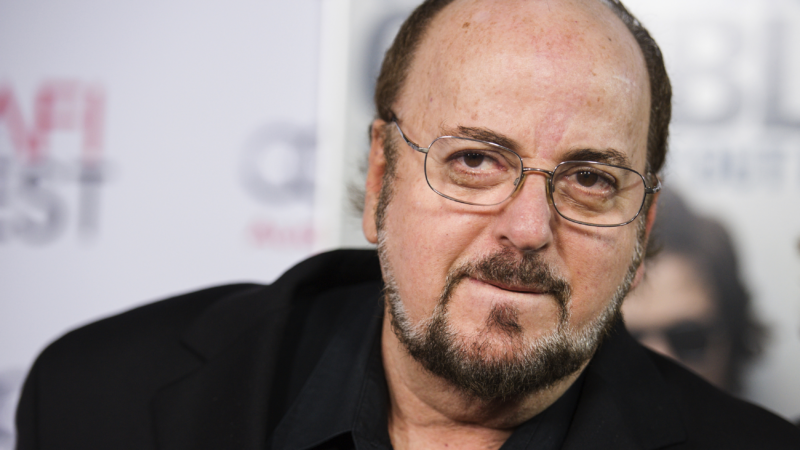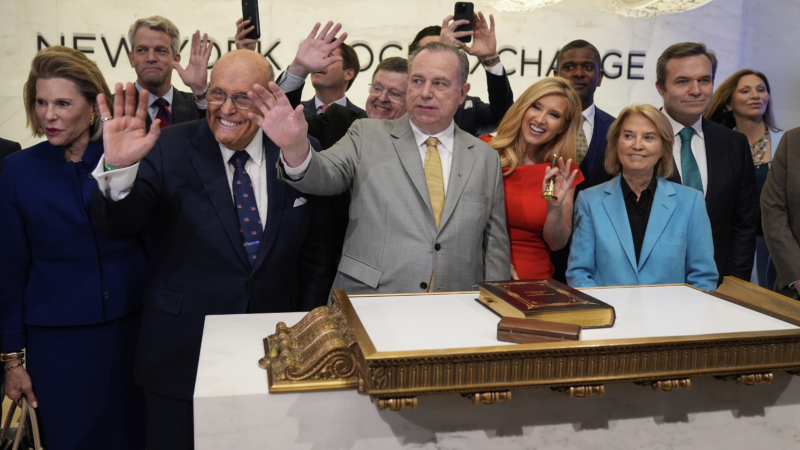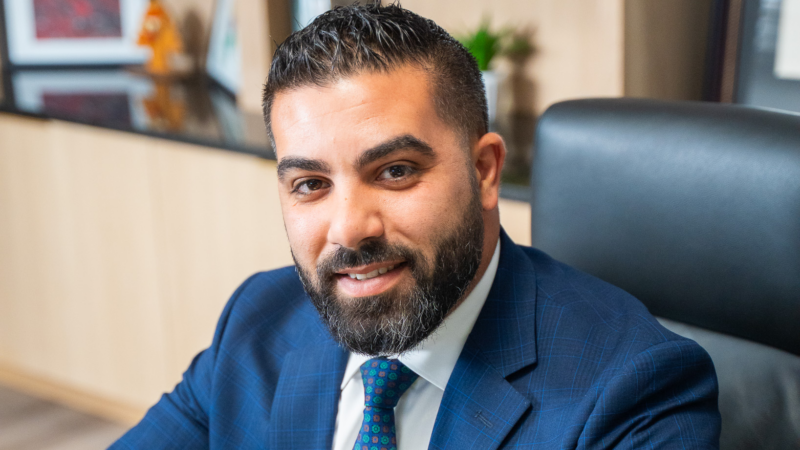Lebanon chooses a new president after two years without one
BEIRUT — Lebanon’s parliament has chosen the head of the country’s armed forces, Joseph Aoun, to be its next president, after going more than two years without one.
Aoun’s selection on Thursday is one important step toward addressing a decimated economy and financial system, and to marshal funds to repair costly destruction from a 14-month conflict between Israel and the Lebanese militant group Hezbollah that ended in November.
“It’s long overdue that we really need to have a new president,” says Abdul Rahman Bizri, an independent member of parliament and a former mayor who says he voted for Aoun. “We have to start working again in order to rebuild the public sector and institutions and stability in the country in order to achieve what people are aspiring for.”
The new president’s to-do list is long.
Aoun vowed in his acceptance speech on Thursday to strengthen the small Middle Eastern country’s weakened state governing capabilities, reform the financial sector and defend Lebanon. It was unclear when Aoun would step down as the head of the military or if he would hold both positions at the same time.
“We will invest in the army to control and secure the borders in the south and demarcate them in the east and north, combating terrorism, implementing international resolutions and preventing Israeli attacks on Lebanon,” Aoun vowed in his acceptance speech. “It is time to invest in Lebanon through our foreign relations rather than betting on external powers to overpower one another.”
He did not name those powers but could have been referencing the rivalry between Iran on one side, which backs the Lebanese militant group Hezbollah, and the U.S. and Israel on the other.
Aoun, who is widely perceived in Lebanon as supported by Saudi Arabia and the U.S., also committed “to confirm the state’s right to have a monopoly on bearing arms.” That was likely an implicit reference to Hezbollah, Lebanon’s most powerful armed militia, which as part of a ceasefire deal with Israel must withdraw its fighters and disarm within Lebanon by late January. The ceasefire ended fighting that began in October 2023, when Hezbollah launched rockets at Israel in support of the Palestinian militant group Hamas, which attacked southern Israel from Gaza on Oct. 7 of that year.
Aoun will also be crucial to implementing that November ceasefire with Israel. Israeli military forces continue to occupy a strip of border villages in southern Lebanon, and Israel’s defense minister warned earlier this month that Israel might stay past January, longer than the terms of the ceasefire deal, if it feels Hezbollah has not fully complied.
Najat Saliba, a member of parliament who also voted for Aoun, says the situation requires the implementation of United Nations Security Council Resolution 1701, adopted after a 2006 ceasefire between Hezbollah and Israel that has never been enforced.
Lebanon’s members of parliament had failed in 12 previous rounds of voting to reach a consensus on a president, leaving the presidency vacant since former President Michel Aoun stepped down in October 2022. The former leader has no relation to Joseph Aoun.
However, this time, opposition to Aoun — primarily from Hezbollah’s political wing, which has a large minority of seats in parliament — largely vanished, and after two rounds of voting on Thursday, Aoun clinched the two-thirds majority needed to secure the president’s office. To do so, he had to secure support from a coalition of Lebanon’s diverse sectarian groups. Aoun himself is Maronite Christian, which by convention is a prerequisite in Lebanon for holding the office of president and head of the armed forces. (The system says the prime minister is supposed to be Sunni Muslim and the speaker of parliament Shia Muslim.)
Aoun’s opponents criticized him for being the preferred candidate in an election they allege has been stage-managed by countries like the United States and Israel, whose foreign minister offered a rare congratulations to Aoun shortly after he was elected. Aoun has been working closely with a U.S.-led monitoring commission to enforce the November ceasefire between Israel and Lebanon and has been praised by U.S. officials.
Some legislators also opposed letting Aoun bypass a constitutional restriction that forbade him from running for president while also serving as head of the military.
“Generally, there should be a president,” said parliamentarian Oussama Saad. “But we did not want there to be a president who starts their term with a breach of the constitution.”
In protest, several politicians cast blank ballots in Thursday’s vote, or filled out ballots with nonsensical candidates, including one vote for the U.S. Sen. Bernie Sanders.
Jury awards $1.68 billion to women who accused director Toback of sexual abuse
Toback, who wrote Bugsy, faces one of the largest #MeToo verdicts in history after a New York jury ordered him to pay 1.68 billion in damages to 40 women.
Judge finds Newsmax aired false and defamatory claims about voting-tech company
A Delaware judge finds the right-wing network aired false and defamatory statements about Dominion Voting Systems' role in the 2020 presidential election. A jury trial is slated for late April.
10 emerging writers win Whiting Awards
The awards, which come with a $50K purse, have helped launch the writing careers of many now well-known authors, including Colson Whitehead, Ocean Vuong, Alice McDermott and Jia Tolentino.
Alabama approves regulations on pharmacy benefit managers in order to help small pharmacies
The Alabama House backed the proposal that will require pharmacy benefit managers to reimburse independent pharmacists at least at the state Medicaid rate for prescription drugs. The bill now goes to Alabama Gov. Kay Ivey.
20 musicians who should get to go to space before Katy Perry
On April 14, Blue Origin plans to launch a space flight with a crew that includes the singer behind the 2010 hit "Firework." But we can think of many other artists who deserve to be among the stars.
Attorney representing a student protester detained by federal immigration agents
Amir Makled sat down with All Things Considered host Juana Summers to describe his experience and what it could mean for other attorneys who are going against the wishes of the Trump administration.








